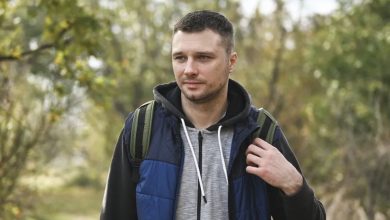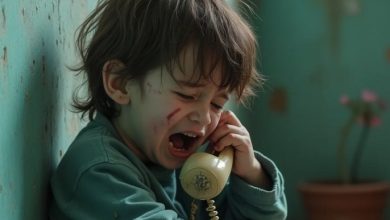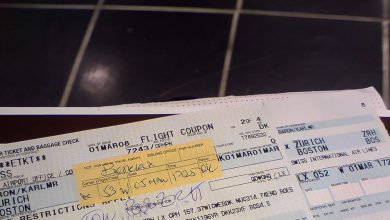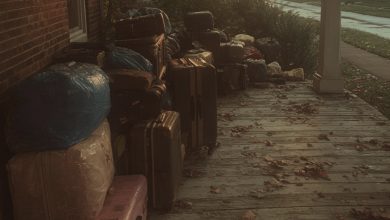“A Stranger’s Warning Made Me Question What Was Happening in My Own Home”
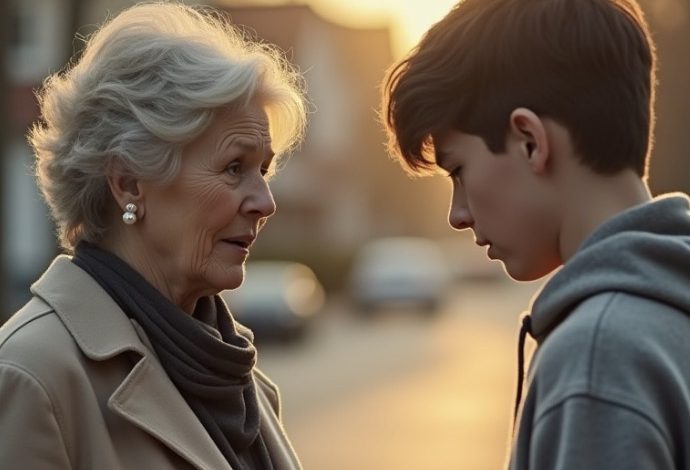
I handed a boy ten dollars because he looked like he hadn’t eaten in days. His clothes were dirty, his backpack ripped, his shoes falling apart. But instead of thanking me, he slipped a crumpled piece of paper into my palm.
Your daughter-in-law put something in your coffee. Don’t drink it.
I froze on the sidewalk, the words shaking inside me like broken glass. When I finally asked Lena about it later, her reaction left me completely speechless.
The day had started like any other. The steam curled from the blue mug on the kitchen counter, rising like a pale ghost in the still morning light. That mug wasn’t mine—I never would have picked it, with its faded little flowers and chipped rim. But Lena, my daughter-in-law, insisted it was “my mug.” Always the same one. Always the blue one.
“Fresh coffee for you, Joan,” she said sweetly. Her voice was warm enough, but her eyes didn’t match. There was something hidden behind them, something I couldn’t quite name.
I cupped the mug between my palms, letting the heat soothe my stiff fingers. Around us, the house whispered: the hum of the fridge, the sigh of the heater, the faint clink as Lena rearranged a spoon she had already cleaned. Small, ordinary sounds. Yet something felt off, like a picture frame slightly crooked on the wall.
Twenty minutes later, I zipped my sweater and stepped outside for my morning walk. The autumn air in Colorado was cool and sharp. The smell of leaves and a neighbor’s frying bacon floated around me. For a moment, the memory of my husband Paul returned—the two of us sharing a crossword at the breakfast table, two mugs steaming between us. Grief, I’d learned, doesn’t go away. You just learn how to walk with it.
I had just picked up the newspaper when I noticed him. A boy, sitting on the steps of the abandoned brick building down the street. He couldn’t have been older than eleven. His hair was tangled, his hoodie stained with dirt. The backpack in his arms looked like it might fall apart at any second, but he clutched it like it was the only thing keeping him grounded.
“Ma’am,” he called. His voice was small but steady. “Please—wait.”
I stopped. There was something in his tone that demanded attention. He stood and walked toward me carefully, as though afraid I might run. He reached out and pressed something into my hand—a crumpled note. His fingers were icy, his bones thin as twigs.
“Don’t drink the coffee,” he whispered urgently, eyes wide and frightened. “The lady with the yellow hair—she put something in it. I saw her.”
Before I could ask him anything—who he was, what he meant—he was gone. He ran down the street, sneakers slapping the pavement, and disappeared like a shadow melting in the sun.
I opened the note. The handwriting was messy, shaking, but the message was clear: Don’t drink the coffee. She doesn’t know I’m watching.
My pulse thundered in my ears as I walked back home. The world around me seemed too quiet, too sharp. The house loomed in front of me like it had grown darker in my absence. On the counter, the blue mug sat innocently, half full. It looked like coffee. It smelled like coffee.
But the boy’s words echoed inside me.
I thought about the last few weeks—how heavy I’d been sleeping. How mornings vanished into fog, how I’d wake up dizzy, stumbling through the house until lunchtime. I had never been like that before.
I carried the mug to the sink and poured it down the drain. The dark liquid swirled and disappeared. I ran the tap until clear water replaced it. My hands shook the whole time.
When Lena returned from grocery shopping an hour later, she set her keys in the ceramic dish by the door and smiled. “How was your walk?”
“Refreshing,” I said, my voice steady though my heart was not. I lifted the empty mug so she could see.
“You didn’t finish your coffee.” Her tone was soft, but underneath it I caught something sharp, almost calculating. “Are you feeling all right today?”
“Maybe I’m finally giving up caffeine,” I answered with a smile, pretending to sound casual.
For a split second, I saw something flicker across her face. A shadow. Was it disappointment? It was gone so quickly, I almost doubted I’d seen it.
“That’s probably for the best,” she said smoothly. “At your age.”
At your age.
The words stung more than they should have. I tucked them away with the blue mug and the strange sleep.
That night, I lay in bed and waited for the fog that usually came after coffee. But it didn’t. My mind stayed clear. For the first time in weeks, I felt sharp, awake.
And then I heard them.
From the other room, Lena’s voice was low and careful: “She seems better today… Maybe we should increase the dosage.”
Increase the dosage.
The words didn’t land softly. They detonated.
I pressed my hand over my mouth to keep from gasping. Every doubt I’d had crashed into one truth: this wasn’t paranoia. It was real.
The next morning, I played the part Lena wanted. I drank “my” coffee while she watched, but I poured it down the bathroom sink when she wasn’t looking. I smiled at her muffins. I thanked her for helping me. I acted fragile, forgetful, exactly the way she wanted me to seem.
But each day without the coffee made me stronger. My head cleared. My energy returned. And with clarity came determination.
I began searching the house quietly. In the desk drawer, I found an amber vial labeled with Lena’s name—Doxylamine Succinate. A sleep aid. Safe in small doses. Dangerous when misused. I didn’t touch it. Instead, I took a photo of the label with my phone.
In the pantry, behind a bag of rice, I found another box of sleeping pills. In the bathroom cabinet, a small unmarked bottle. Piece by piece, I built my case.
I wasn’t losing my mind. I was being silenced.
By the weekend, I had a plan. That morning, Lena set the blue mug in front of me as always. But this time, I didn’t touch it. Instead, I pulled out an old kettle from the back of the cupboard and brewed myself tea.
She frowned when she saw it. “Trying something new?”
“Doctor’s orders,” I said lightly.
She hesitated. Then her smile returned. “That’s probably wise.”
I placed my tea next to her coffee. The blue mug sat between us like a judge.
“Let’s switch cups,” I said.
Her eyes flickered, just for a moment. “Joan, don’t be silly.”
“It’s just a mug,” I replied calmly. “It won’t matter which one you drink.”
She laughed, but the sound was thin. “You’re making me feel like a criminal.”
“Then prove you’re not,” I said, sliding the mug toward her.
Before she could answer, my son Evan walked in, yawning. He kissed her cheek, then mine, and reached for a banana.
“What’s going on?” he asked.
“She’s accusing me of poisoning her,” Lena said quickly.
The word cut through the air like a knife. Evan froze, staring at both of us.
“I’m not accusing,” I said evenly. “I’m asking her to switch mugs.”
Evan rubbed his forehead. “Mom… this is crazy.”
“No,” I said, standing tall. “What’s crazy is that I’ve been sleeping like the dead for weeks. What’s crazy is that I found bottles of sleep medicine hidden around this house. What’s crazy is that she always gives me the same cup. And what’s craziest of all? That boy, warning me not to drink the coffee.”
“Boy?” he repeated, his eyes narrowing.
“Ask her,” I said.
Lena folded her arms. “This is her paranoia talking. She’s confused. She needs help.”
“I need the truth,” I said. “And the truth is simple. If it’s just coffee, then drink mine.”
The silence that followed was heavier than stone. Finally, Evan exhaled and set down the banana.
“We’ll deal with this tonight,” he said firmly. “Seven o’clock. All of us. No secrets.”
Lena’s lips pressed tight. She looked at me, her eyes cold, then turned away.
I went to the freezer, placed the blue mug inside, and shut the door. Evidence. A line drawn.
For the first time in weeks, I felt steady. Whatever came next, I was ready.
Because Lena thought I was weak. She thought I was blind. But she had no idea that I was wide awake—and that I was prepared to fight for my life.

